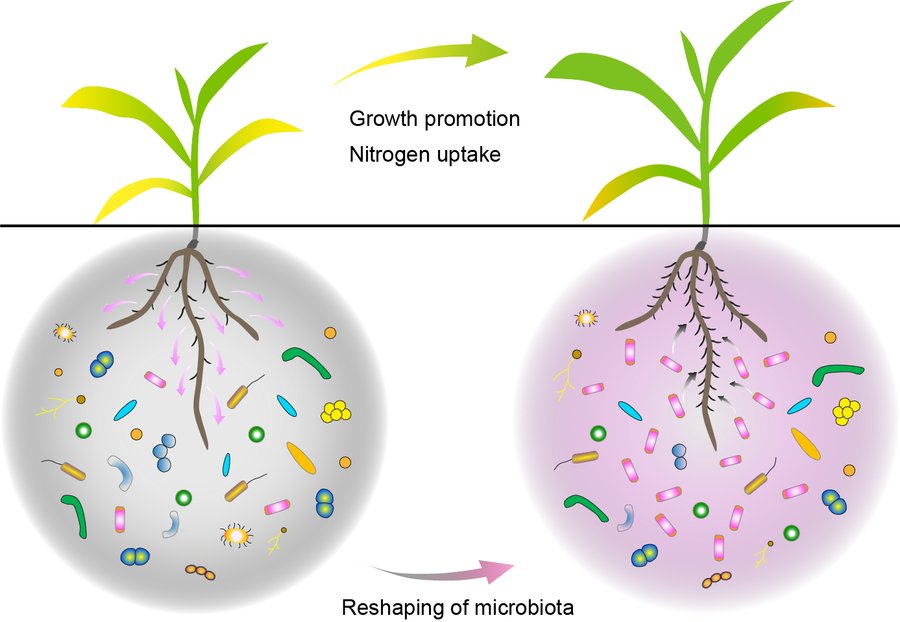Cologne CEPLAS centre searches for new varieties of plants who need less fertiliser
Professor Marcel Bucher’s research group within CEPLAS has lots of experience of studying the interaction between plants and the soil in which they grow. For this study, the research group teamed up with the Universities of Bonn and Southwest China. The study shows how plants regulate their nitrogen supply. The plants enrich the soil with flavonoids to attract more nitrogen-producing bacteria.
Marcel Bucher of the Institute for Plant Sciences at The University of Cologne sees the new findings in the context of wider research: “In addition to nitrogen, agricultural soils are also fertilized with a lot of phosphorus. The extraction of phosphorus from rock and the production of phosphate fertilizer require a lot of energy and water. Similar to nitrogen, certain soil microbes improve the phosphate supply to plants. Here, in addition to bacteria, certain fungi are often the main players,” explains the CEPLAS scientist. “The findings published here enable the development of novel combined strategies for growing maize and other crops with increased nitrogen and phosphorus efficiency using the beneficial microbiota in the rhizosphere.”
The scientists involved studied various maize varieties that differed significantly in their yield. In their search for the reasons for this, they came across an interesting enzyme, flavone synthase 2. “The high-performance breeding line 787 that we studied contains large amounts of this enzyme in its root,” explains Dr. Peng Yu from the Institute of Crop Science and Resource Conservation (INRES) at the University of Bonn. “It uses it to produce certain molecules from the flavonoid group and releases them into the soil.”
Find the whole article here

